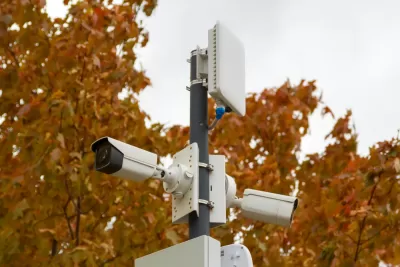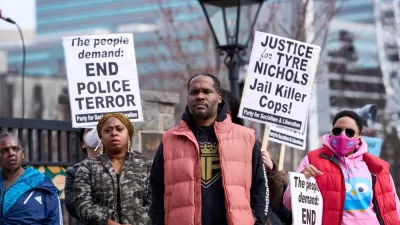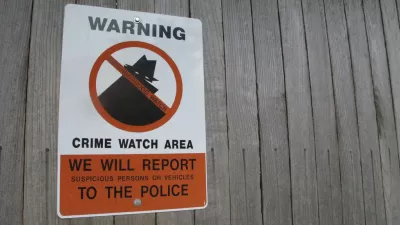As the technology gets cheaper, AI surveillance systems are gaining popularity in some parts of the country, like the neighborhood of Magnolia in Seattle.

Melissa Hellman reports on the proliferation of a private artificial-intelligence security system called Flock Safety in the city of Seattle. Ten neighborhoods around the city are using Flock Safety, including Magnolia, which is where the article's attention focuses.
"The system uses computer vision and machine learning to digitize and categorize images of license plates, the color, make and model of vehicles, as well as how many times a car has entered the neighborhood in a 30-day period," according to Hellman. With that technology, resident Phil Andrews has detected "an uptick in neighborhood disruptions near the secluded waterfront community of dead-end streets called Land’s End. He noted a break-in, package theft and people meandering through the neighborhood who appeared 'high as a kite."
According to Hellman, studies say there are two sides to this private surveillance coin: "While studies show that security cameras can prevent crime when used in conjunction with other deterrents, such as increased lighting, some researchers say AI surveillance systems exacerbate users’ inherent biases and impact people who are disproportionately policed, such as people of color and those experiencing homelessness."
The feature-length article includes more details on how Magnolia residents bought and adopted the technology, how police use surveillance footage from systems like Flock Safety, the adoption of Flock Safety in other 300 U.S. cities, and the business of private security systems, with home security expected to be a $48 billion business next year.

Planetizen Federal Action Tracker
A weekly monitor of how Trump’s orders and actions are impacting planners and planning in America.

Map: Where Senate Republicans Want to Sell Your Public Lands
For public land advocates, the Senate Republicans’ proposal to sell millions of acres of public land in the West is “the biggest fight of their careers.”

Restaurant Patios Were a Pandemic Win — Why Were They so Hard to Keep?
Social distancing requirements and changes in travel patterns prompted cities to pilot new uses for street and sidewalk space. Then it got complicated.

Platform Pilsner: Vancouver Transit Agency Releases... a Beer?
TransLink will receive a portion of every sale of the four-pack.

Toronto Weighs Cheaper Transit, Parking Hikes for Major Events
Special event rates would take effect during large festivals, sports games and concerts to ‘discourage driving, manage congestion and free up space for transit.”

Berlin to Consider Car-Free Zone Larger Than Manhattan
The area bound by the 22-mile Ringbahn would still allow 12 uses of a private automobile per year per person, and several other exemptions.
Urban Design for Planners 1: Software Tools
This six-course series explores essential urban design concepts using open source software and equips planners with the tools they need to participate fully in the urban design process.
Planning for Universal Design
Learn the tools for implementing Universal Design in planning regulations.
Heyer Gruel & Associates PA
JM Goldson LLC
Custer County Colorado
City of Camden Redevelopment Agency
City of Astoria
Transportation Research & Education Center (TREC) at Portland State University
Camden Redevelopment Agency
City of Claremont
Municipality of Princeton (NJ)




























